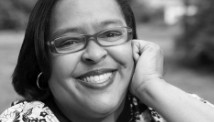Editor's note: Benét J. Wilson is an aviation and travel journalist. She blogs at AviationQueen.com and has worked for two airlines and an aircraft engine manufacturer.
(CNN) -- "The (airline) bar is closed." More flight attendants should say that to more passengers.
This might seem like heresy to the millions of travelers who enjoy free drinks in the upper classes and on international flights, but maybe it's time airlines consider putting a cap on drinks, or charging passengers for their alcohol after the first drink or two.
Recently, Jennifer Lauren, niece of fashion designer Ralph Lauren, was allegedly misbehaving on a Delta Air Lines flight after getting "dangerously drunk" and abusive toward other passengers. It got so bad that the New York bound plane made an unscheduled stop in Ireland to remove her from the flight. She was arrested for endangering other passengers.
 Benét J. Wilson
Benét J. Wilson Let's not be shocked by this. These days, a month doesn't go by that I don't hear about an intoxicated passenger getting into fights with flight crews or their fellow travelers.
The Jennifer Lauren episode is fresh in our memory, but drunks on planes are nothing new. A few years ago, French actor Gérard Depardieu made the headlines when he, allegedly drunk, urinated in the aisle during an Air France flight from Paris to Dublin, Ireland.
And let's not forget "Dracula" star Jonathan Rhys Meyers, who was banned from flying on United Airlines after drinking heavily in the carrier's first class lounge in a flight from New York to Los Angeles. The crew noticed he had become belligerent and disruptive, so they refused to let him board the flight to L.A.
In an August 2013 report on unruly passengers, the International Air Transport Association, which represents airlines from around the world, noted that "many" carriers said alcohol was the major contributor to disruptive behavior. "They observed that passengers, in numerous instances, may have been intoxicated at the time of boarding the aircraft or had access to their own alcohol supply on board."
Similarly, the Toronto-based International Association for Medical Assistance to Travelers said air rage tends to occur in unfamiliar and over-stimulating environments, including airports and airplanes. The rage is fueled by "overcrowding, delays, lack of information, lack of manners and boorish behavior, as well as arguments with transportation or service personnel." Furthermore, "Heightened stress levels, alcohol and drug misuse, as well as smoking prohibitions in many public places, are common factors inciting rage."
Unfortunately, some travelers choose alcohol before and during a flight, and in extreme cases, end up in conflicts with passengers and crew and attempt to open emergency exits and even storm the cockpit.
The bottom line is flight crews and passengers need to be more mindful. Flight attendants, like it or not, are the final line of defense when it comes to drunk passengers. They need to be empowered to cut off passengers when a fellow traveler brings up a legitimate complaint or if they see bad behaviors escalating. And in our post-9/11 travel world, passengers are much more willing to help flight crews with unruly passengers in case there isn't an air marshal aboard.
Those who choose to drink excessively and become abusive not only should be prosecuted to the fullest extent of the law, but they also need to be sued to recover the costs for any diversion or damages they may cause others during their inebriated state.
There are always travelers who will drink, whether it's free or not. By imposing fees and/or limits on the number of drinks, airlines would not only reduce alcohol consumption, but also make a profit from a common-sense regulation. Maintaining good order during flights is one of the best ways that airlines can serve their customers well.
Follow us on Twitter @CNNOpinion.
Join us on Facebook/CNNOpinion.
{ 0 comments... read them below or add one }
Post a Comment